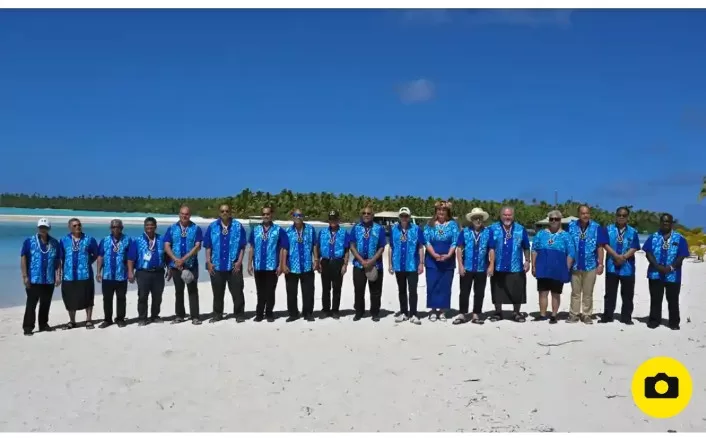Leaders from Pacific island nations, joined by Australia and New Zealand, concluded their pivotal annual talks grappling with pressing global concerns. The weeklong Pacific Islands Forum (PIF) summit in the Cook Islands covered crucial topics such as the phase-out of fossil fuels, the intensifying rivalry between the US and China, and internal tensions within the Pacific region.
Fossil Fuel Phase-Out: A Delicate Balancing Act
Given the vulnerability of Pacific island countries to climate change, the summit naturally prioritized discussions on the climate crisis. Civil society groups had hoped for a strong endorsement of the “Port Vila call for a just transition to a fossil fuel-free Pacific.” However, the summit’s communique opted for more cautious language, expressing leaders’ aspiration for a just and equitable transition to a fossil fuel-free Pacific. Acknowledging the diverse circumstances of member nations, the statement emphasized that the pathway to this transition is neither immediate nor one-size-fits-all.
Great Power Competition: Striving for Equilibrium
The Pacific region has become a focal point for major powers, particularly the US and China. The summit witnessed the participation of 21 dialogue partners, including the US, China, the UK, India, and the EU. While acknowledging heightened geostrategic interest, Cook Islands Prime Minister Mark Brown emphasized that the Pacific’s priorities, particularly addressing climate change, should not be dictated by external influences. Fijian Prime Minister Sitiveni Rabuka proposed designating the Pacific as a “zone of peace,” aiming to prevent great power competition from escalating into conflict.
Nuclear Safety Issues: Sensitivity Prevails
Given the Pacific’s history as a nuclear weapons testing zone, nuclear safety remains a sensitive subject. Leaders addressed concerns about Japan’s release of treated water from the Fukushima Daiichi nuclear power plant into the Pacific Ocean. Despite assurances from Japan and the International Atomic Energy Agency, leaders recognized the sovereignty of nations to determine their positions on the matter and committed to enhanced local monitoring.
Australia’s Aukus Deal and Regional Unity Challenges
Australia faced scrutiny over its Aukus deal to acquire nuclear-powered submarines, a matter of concern for some Pacific leaders. Prime Minister Anthony Albanese provided an update on Australia’s efforts, assuring compliance with international legal obligations. Efforts to “revitalize” the Treaty of Rarotonga, a nuclear-free zone agreement, were discussed. Tensions within the Pacific region resurfaced, with signs of internal discord despite calls for unity. The reaffirmation of the planned appointment of Baron Waqa as the regional group’s secretary general aimed at avoiding a repeat of past fractures.
The PIF summit highlighted the intricate challenges faced by Pacific leaders, striving to balance global pressures with the unique needs and priorities of their nations.




